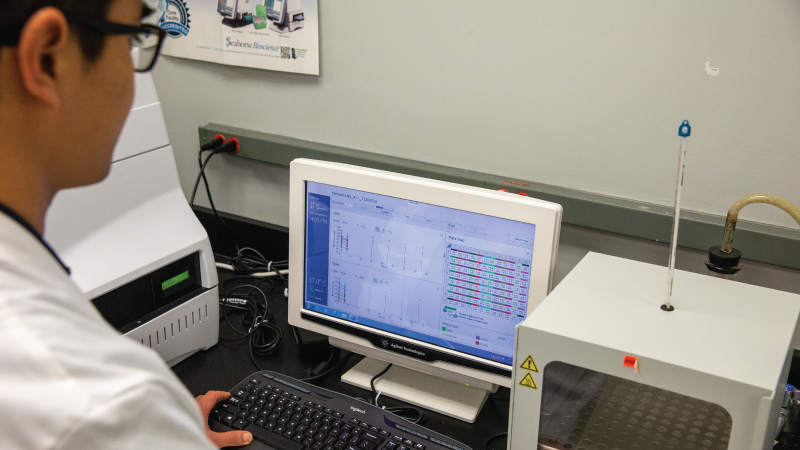Seahorse Bioscience Extracellular Flux Analyzer
The Seahorse XF-96 measures the rate of change of analytes dissolved oxygen and pH in media immediately surrounding living cells cultured in a microplate. Changes in the extracellular media are caused by the consumption or production of analytes by the cells. Therefore, a sensitive measurement of the media flux can be used to determine rates of cellular metabolism with great precision and in a totally noninvasive, label free manner. The analyzer can make measurements in as little as five minutes. Cells can be profiled over a period of minutes, hours, or days.
The cost per experimental plate is $200. This price includes the compounds utilized in a basic mitochondrial stress test (oligomycin, FCCP, and ANT.A/Rotenone).





